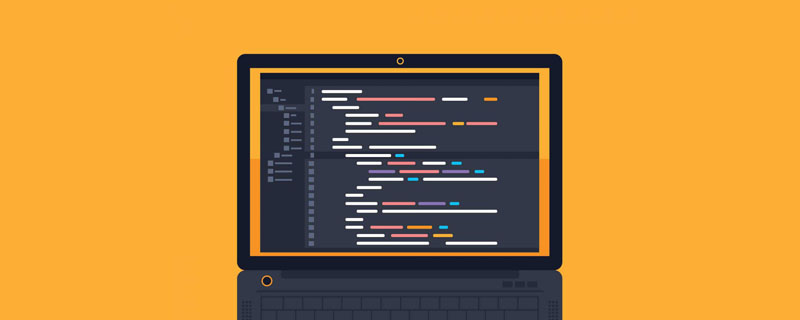This time I will show you how to write email templates using HTML. What are the precautions for using HTML to write email templates? Here are practical cases, let’s take a look.
Today, I want to write about a "low-tech" problem.
By the way, I have subscribed to a lot of newsletters (Newsletters), such as JavaScript Weekly. Get a weekly email with the big stories of the week.
One day, I was thinking, can I also make an email like this?
Then, I found that it was not that easy. Putting aside the background and editing work, just designing an Email template requires a lot of thought.
Because this kind of formatted email is actually a web page, its official name is HTML Email. Whether it displays properly depends entirely on the mail client. Most email clients (such as Outlook and Gmail) filter HTML settings, making emails unrecognizable.
I found that the trick to writing HTML emails is to use the web page creation method from 15 years ago. Below is the writing guide I put together.
1. Doctype
Currently, the most compatible Doctype is XHTML 1.0 Strict. In fact, Gmail and Hotmail will delete your Doctype and replace it with this Doctype.
<!DOCTYPE html PUBLIC "-//W3C//DTD XHTML 1.0 Transitional//EN" "http://www.w3.org/TR/xhtml1/DTD/xhtml1-transitional.dtd"> <html xmlns="http://www.w3.org/1999/xhtml"> <head> <meta http-equiv="Content-Type" content="text/html; charset=UTF-8" /> <title>HTML Email编写指南</title> <meta name="viewport" content="width=device-width, initial-scale=1.0"/> </head> </html>
Using this Doctype means that HTML5 syntax cannot be used.
2. Layout
The layout of the web page must use a table. First, place a large outermost table to set the background.
<body style="margin: 0; padding: 0;"> <table border="1" cellpadding="0" cellspacing="0" width="100%"> <tr> <td> Hello! </td> </tr> </table> </body>
The border attribute of the table is equal to 1 for the convenience of development. When officially released, set this attribute to 0.
On the inner layer, place the second table. Used to display content. The width of the second table is set to 600 pixels to prevent it from exceeding the client's display width.
<table align="center" border="1" cellpadding="0" cellspacing="0" width="600" style="border-collapse: collapse;"> <tr> <td> Row 1 </td> </tr> <tr> <td> Row 2 </td> </tr> <tr> <td> Row 3 </td> </tr> </table>
The email content has several parts, so just set a few rows.
3. Pictures
Pictures are the only external resources that can be cited. Other external resources, such as style sheet files, font files, video files, etc., cannot be quoted.
Some clients will add borders to image links, and the borders need to be removed.
img {outline:none; text-decoration:none; -ms-interpolation-mode: bicubic;}
a img {border:none;}
<img border="0" style="max-width:90%" alt="How to write email templates using HTML" >It should be noted that many clients do not display images by default (such as Gmail), so make sure that the main content can be read even without images.
4. Inline style
It is best to use inline style for all CSS rules. Because the styles placed in the head of the web page are likely to be deleted by the client. For client support for CSS rules, please see here.
In addition, do not use the abbreviation form of CSS, some clients do not support it. For example, don’t write it like this:
style="font: 8px/14px Arial, sans-serif;"
If you want to express
<p style="margin: 1em 0;">
, write it like this:
<p style="margin-top: 1em; margin-bottom: 1em; margin-left: 0; margin-right: 0;">
5. W3C checksum testing tool
It is necessary to ensure that the final code can pass W3C verification, because some clients will strip off unqualified attributes. Also use the test tools (1, 2, 3) to see the display results on different clients.
When sending HTML Email, don’t forget that the MIME type cannot be used
Content-Type: text/plain;
. Instead, use
Content-Type: Multipart/Alternative;
. For sending tools, consider using MailChimp and Campaign Monitor.
6. Templates
It is a good choice to use templates that others have already made (here and here), and you can find more online.
I believe you have mastered the methods after reading these cases. For more exciting information, please pay attention to other related articles on the php Chinese website!
Related reading:
What are the standards for HTML code writing
How to use HTML and CSS to make clear text
What are the commonly used tags in XHTML
The above is the detailed content of How to write email templates using HTML. For more information, please follow other related articles on the PHP Chinese website!
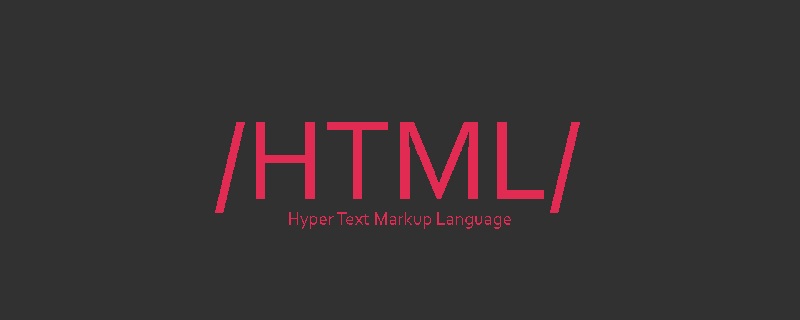 HTML超文本标记语言--超在那里?(文档分析)Aug 02, 2022 pm 06:04 PM
HTML超文本标记语言--超在那里?(文档分析)Aug 02, 2022 pm 06:04 PM本篇文章带大家了解一下HTML(超文本标记语言),介绍一下HTML的本质,HTML文档的结构、HTML文档的基本标签和图像标签、列表、表格标签、媒体元素、表单,希望对大家有所帮助!
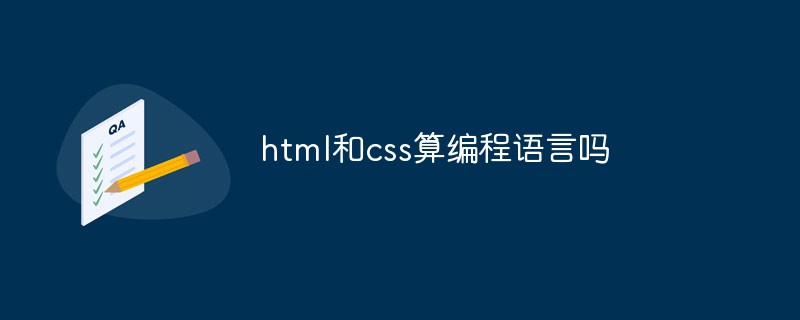 html和css算编程语言吗Sep 21, 2022 pm 04:09 PM
html和css算编程语言吗Sep 21, 2022 pm 04:09 PM不算。html是一种用来告知浏览器如何组织页面的标记语言,而CSS是一种用来表现HTML或XML等文件样式的样式设计语言;html和css不具备很强的逻辑性和流程控制功能,缺乏灵活性,且html和css不能按照人类的设计对一件工作进行重复的循环,直至得到让人类满意的答案。
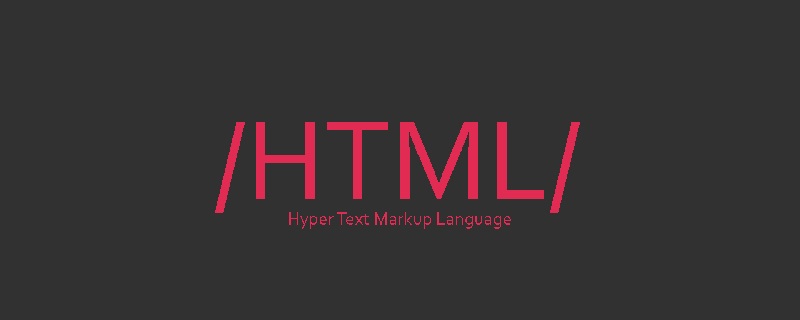 web前端笔试题库之HTML篇Apr 21, 2022 am 11:56 AM
web前端笔试题库之HTML篇Apr 21, 2022 am 11:56 AM总结了一些web前端面试(笔试)题分享给大家,本篇文章就先给大家分享HTML部分的笔试题(附答案),大家可以自己做做,看看能答对几个!
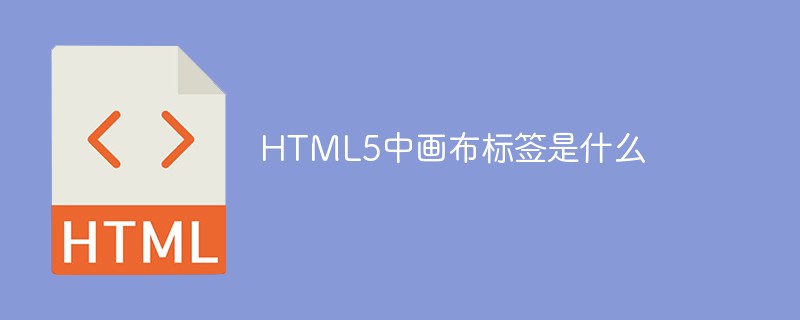 HTML5中画布标签是什么May 18, 2022 pm 04:55 PM
HTML5中画布标签是什么May 18, 2022 pm 04:55 PMHTML5中画布标签是“<canvas>”。canvas标签用于图形的绘制,它只是一个矩形的图形容器,绘制图形必须通过脚本(通常是JavaScript)来完成;开发者可利用多种js方法来在canvas中绘制路径、盒、圆、字符以及添加图像等。
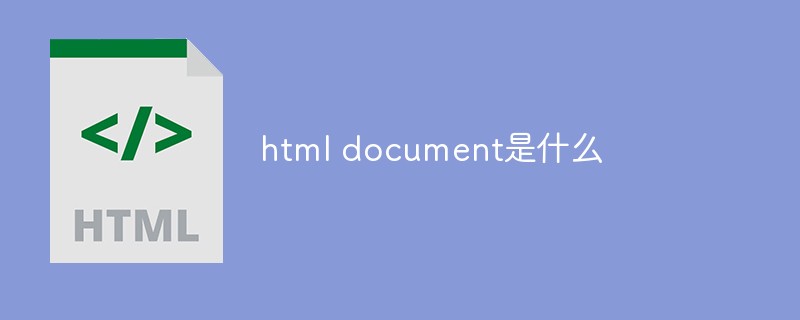 html中document是什么Jun 17, 2022 pm 04:18 PM
html中document是什么Jun 17, 2022 pm 04:18 PM在html中,document是文档对象的意思,代表浏览器窗口的文档;document对象是window对象的子对象,所以可通过“window.document”属性对其进行访问,每个载入浏览器的HTML文档都会成为Document对象。
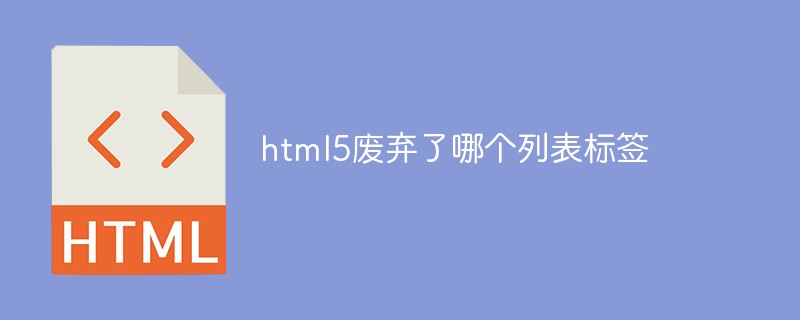 html5废弃了哪个列表标签Jun 01, 2022 pm 06:32 PM
html5废弃了哪个列表标签Jun 01, 2022 pm 06:32 PMhtml5废弃了dir列表标签。dir标签被用来定义目录列表,一般和li标签配合使用,在dir标签对中通过li标签来设置列表项,语法“<dir><li>列表项值</li>...</dir>”。HTML5已经不支持dir,可使用ul标签取代。
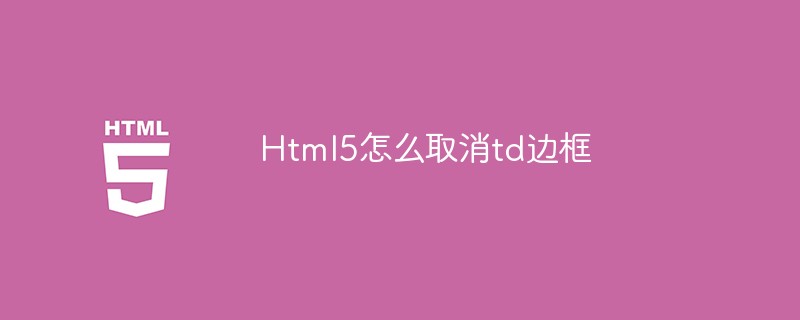 Html5怎么取消td边框May 18, 2022 pm 06:57 PM
Html5怎么取消td边框May 18, 2022 pm 06:57 PM3种取消方法:1、给td元素添加“border:none”无边框样式即可,语法“td{border:none}”。2、给td元素添加“border:0”样式,语法“td{border:0;}”,将td边框的宽度设置为0即可。3、给td元素添加“border:transparent”样式,语法“td{border:transparent;}”,将td边框的颜色设置为透明即可。


Hot AI Tools

Undresser.AI Undress
AI-powered app for creating realistic nude photos

AI Clothes Remover
Online AI tool for removing clothes from photos.

Undress AI Tool
Undress images for free

Clothoff.io
AI clothes remover

AI Hentai Generator
Generate AI Hentai for free.

Hot Article

Hot Tools

Safe Exam Browser
Safe Exam Browser is a secure browser environment for taking online exams securely. This software turns any computer into a secure workstation. It controls access to any utility and prevents students from using unauthorized resources.

PhpStorm Mac version
The latest (2018.2.1) professional PHP integrated development tool

MinGW - Minimalist GNU for Windows
This project is in the process of being migrated to osdn.net/projects/mingw, you can continue to follow us there. MinGW: A native Windows port of the GNU Compiler Collection (GCC), freely distributable import libraries and header files for building native Windows applications; includes extensions to the MSVC runtime to support C99 functionality. All MinGW software can run on 64-bit Windows platforms.

WebStorm Mac version
Useful JavaScript development tools

mPDF
mPDF is a PHP library that can generate PDF files from UTF-8 encoded HTML. The original author, Ian Back, wrote mPDF to output PDF files "on the fly" from his website and handle different languages. It is slower than original scripts like HTML2FPDF and produces larger files when using Unicode fonts, but supports CSS styles etc. and has a lot of enhancements. Supports almost all languages, including RTL (Arabic and Hebrew) and CJK (Chinese, Japanese and Korean). Supports nested block-level elements (such as P, DIV),





